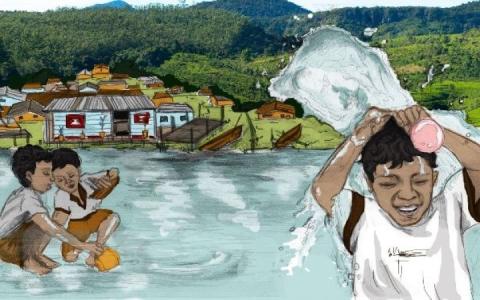
UNITAR Online Catalogue
CIFAL Singapore - Sustainable Futures: Environmental Challenges and Solutions

People
CIFAL Singapore
Antecedentes
Environmental sustainability is a pressing global challenge that requires an understanding of the interactions between human society and the natural world. This course aims to provide students with a foundational understanding of environmental sustainability, with a specific focus on Southeast Asia. Through an interdisciplinary approach, students will explore ecological processes, resource management, and Earth system science while analysing sustainability challenges and solutions in an urban tropical context. The course integrates experiential learning, peer discussions, and effective communication strategies to equip students with the knowledge and skills necessary to critically assess environmental issues.
This course is designed for students from all disciplines, including those without a background in science. It provides a clear foundation in environmental systems and sustainability concepts that are relevant to everyone. As environmental issues become increasingly urgent, understanding the science behind them is essential. This course will help students critically evaluate environmental news, recognize evidence-based sustainability solutions, and explore ways to take meaningful action through lifestyle choices, advocacy, or career paths.
Objetivos del evento
This course introduces students to fundamental concepts in environmental sustainability. Through this course, students will develop a deeper appreciation for the interconnectedness of environmental, social, and economic sustainability. They will leave with the knowledge and skills necessary to critically assess environmental issues, communicate effectively, and contribute meaningfully to sustainability initiatives in their own communities and future careers. Special emphasis will be placed on Southeast Asia, a region facing unique environmental challenges due to rapid urbanization, deforestation, and climate change impacts.
Objetivos del aprendizaje
By the end of this course, you should be able to:
- Explain fundamental ecological and Earth system processes
- Evaluate different approaches to sustainable resource use and waste management in urban and natural environments
- Identify and assess environmental challenges in Southeast Asia, considering scientific evidence, socio-economic factors, and policy implications
- Apply theoretical knowledge to real-world sustainability challenges through field trips and case studies in Singapore
- Work collaboratively to propose practical, science-based sustainability solutions relevant to Southeast Asia
Effectively communicate sustainability concepts to a range of audiences
Contenido y estructura
This course will introduce students to key sustainability concepts, beginning with human-environment interactions and resource management approaches. Students will explore modern sustainability frameworks that redefine the relationship between people and nature. The course will provide a foundational scientific understanding of ecological, biogeochemical, and energy systems before transitioning to resource management topics, including land, water, and waste. Climate change will be a central theme, with a focus on mitigation and adaptation strategies.
Each lecture will incorporate interactive discussions and real-world examples to highlight the interdisciplinary nature of sustainability. Students will develop an appreciation for how diverse fields contribute to environmental solutions. The course will conclude with a capstone media project where student groups will share their own perspectives on the environmental challenges and potential solutions from across Southeast Asia. This storytelling project is designed to empower students to apply their knowledge and experiences in meaningful ways.
- Defining environmental commons, such as the ‘tragedy of the commons’ and ‘common pool resource management’
- Understanding human-environment interactions, including human demography and societal wealth
- Exploring the role of biological diversity in maintaining ecological balance and natural capital
- Understanding how geological, oceanic, biological, and atmospheric systems interact, may be altered by human activities
- Examining the extraction and use of non-renewable resources and the potential of renewable energy sources
- Assessing how land and water resources are managed under different societal and environmental conditions.
- Understanding waste generation and evaluating sustainable waste management solutions
- Exploring strategies to address the impacts of climate change (e.g., nature-based climate solutions and habitat restoration)
Metodología
This course employs a dynamic and interactive approach, combining lectures, field trips, tutorial workshops, and a capstone media group project. Lectures will introduce interdisciplinary concepts, providing students with a foundational understanding of environmental sustainability. Experiential learning will be central to the course, with field trips to key locations in Singapore showcasing real-world sustainability challenges and solutions. These site visits will cover topics such as ecosystem management and restoration, nature-based climate solutions, marine conservation, environmental outreach, and water resource management. Students will engage in reflective exercises to connect field experiences with theoretical knowledge. Tutorials will foster peer-led discussions, allowing students from diverse backgrounds to collaborate and communicate environmental issues effectively. Tutorials will also reinforce key concepts, providing a space for students to share ideas, debate sustainability issues, and develop meaningful solutions. The capstone project will emphasize interdisciplinary teamwork and communication, encouraging students to present environmental challenges and solutions from an ASEAN perspective.
Público objetivo
ASEAN undergraduates between 17 to 24 years old
Información adicional
Taught by Asst Prof Kyle Morgan.
This course is offered under Track 2: Sustainable Futures of the NTU ASEAN Summer Programme.
Aligns with UN SDGs, particularly SDG 13 (Climate Action), SDG 11 (Sustainable Cities and Communities), SDG 12 (Responsible Consumption and Production), SDG 14 (Life Below Water), and SDG 15 (Life on Land).